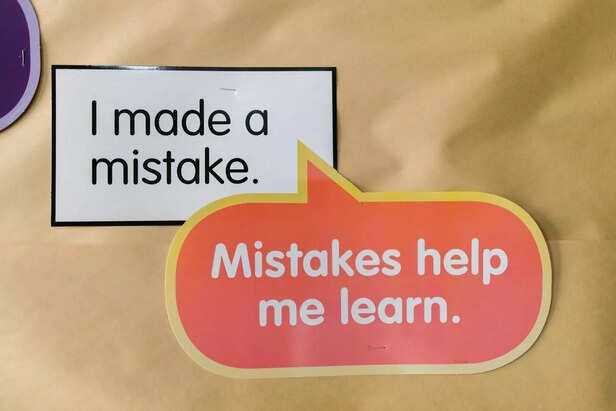Modern Love, Ancient Lessons – Relationship Lessons from the Mahabharata
Riya Kumari | Feb 23, 2025, 23:59 IST
So, you think your love life is complicated? Maybe your ex still watches all your Instagram stories, or your situationship of six months refuses to acknowledge Valentine’s Day. But let me tell you, even the Mahabharata makes today’s dating scene look like a middle school crush gone wrong. Yes, the same epic that features gods, warriors, and a literal apocalyptic war also doubles as the world’s most chaotic relationship advice column.
We like to believe our struggles with love are new. That modern relationships are uniquely difficult, that no one before us had to deal with commitment issues, loyalty dilemmas, or the unbearable weight of choosing the wrong person. But the truth is, love has always been complicated—messy, demanding, full of choices that don’t come with easy answers. If anything, the Mahabharata proves that the human heart has always been restless, torn between duty and desire, between what we want and what the world expects. And if we pay attention, this ancient epic isn’t just a story of gods and warriors—it’s a mirror reflecting our own struggles with love, loyalty, and the consequences of our choices.
1. Draupadi: Love is Not a Prize to Be Won

Draupadi was no ordinary woman. Born from fire, destined for greatness, she was not just a queen but a force in herself. And yet, she was reduced to a prize—won in a contest, divided among five husbands, humiliated in a court where no one stood up for her when it mattered.
How often does this happen even today? Women are told they are special, cherished, valued—but when the moment of truth arrives, when they need someone to stand by them, silence fills the room. Draupadi’s story is a stark reminder that love is not about grand words; it’s about who chooses to fight for you when the world turns against you. If you ever find yourself in a room where your dignity is up for debate, ask yourself: who is speaking? Who is silent? And who is willing to burn the whole place down for you? That answer is all you need to know about your worth.
2. Karna: Loyalty Can Be a Beautiful, Tragic Thing

Karna’s entire life was shaped by rejection. A warrior without a birthright, a prince denied his throne, a man constantly proving himself to those who never truly accepted him. When Duryodhana extended his hand in friendship, Karna took it—grateful, unwaveringly loyal, willing to follow him into battle even when he knew it would cost him everything. But here’s the thing: loyalty is only noble when given to the right people. Karna’s greatest tragedy wasn’t that he was unloved—it was that he chose to repay kindness with unquestioning devotion, even when that kindness came from a man leading him toward ruin.
Sometimes, love disguises itself as duty. But duty, when misdirected, becomes a chain. If you find yourself constantly proving your worth, sacrificing yourself for someone who would never do the same for you—ask yourself if your loyalty is to love, or to the fear of being alone.
3. Arjuna: The Cost of Hesitation

Arjuna stood on the battlefield of Kurukshetra, bow in hand, torn apart by doubt. Facing him were people he had loved, respected, grown up with. The war was just, but his heart hesitated.How often do we stand at the crossroads of our own lives, knowing what we must do but struggling to do it? In love, in life, in the choices that define us, hesitation is sometimes the greatest enemy. We stay in relationships that have long lost their meaning, we avoid the difficult conversations, we let time pass, hoping that clarity will come without effort.
But wisdom is knowing that clarity comes from action, not avoidance. Arjuna’s lesson is simple: when you know what is right, even when it is painful, you must act. Not because it is easy, but because the cost of inaction is greater than the cost of making the wrong choice.
4. Gandhari: Love Should Not Be Blind

Gandhari blindfolded herself the day she married Dhritarashtra, choosing to share in his darkness as an act of love and devotion. But love is not about closing your eyes—it is about seeing clearly and choosing wisely. There is a difference between standing beside someone and losing yourself in them. Between supporting a partner and surrendering your own vision. Love should expand your world, not shrink it. When we give up our voice, our sight, our dreams in the name of love, we must ask: is this love, or is this fear?
Gandhari’s devotion was unparalleled, but her blindness—both literal and metaphorical—allowed destruction to brew in her own home. There is no honor in refusing to see what must be seen. Love is strongest when it is built on truth, not sacrifice.
5. Abhimanyu: Half-Knowledge is Dangerous

Abhimanyu, young and fearless, knew how to break into the deadly chakravyuha formation—but he didn’t know how to get out. He charged forward anyway, because he believed in his strength. And that was his downfall. So many of us walk into love this way—knowing how to begin, but never preparing for what comes after. We romanticize the falling, the passion, the fire, but we do not think about what love asks of us once the high fades. The ability to communicate. To navigate differences. To walk away when love turns into something else.
Abhimanyu’s lesson is this: don’t just learn how to love. Learn how to protect yourself in love. How to know when to stay, when to fight, and when to leave with grace. Because love, like battle, requires both courage and wisdom.
Love, War, and the Choices We Make
The Mahabharata does not give easy answers. It does not tell us that love is always kind, or that the right choice will always be painless. But it does tell us that love—like war, like destiny, like life—is about the choices we make. It asks us: Who do you stand by? Who do you fight for? And, most importantly, who fights for you? Because in the end, love is not a feeling. It is an act of will, of wisdom, of knowing who deserves a place in your story. Choose wisely.
1. Draupadi: Love is Not a Prize to Be Won

Holding hands
( Image credit : Pexels )
Draupadi was no ordinary woman. Born from fire, destined for greatness, she was not just a queen but a force in herself. And yet, she was reduced to a prize—won in a contest, divided among five husbands, humiliated in a court where no one stood up for her when it mattered.
How often does this happen even today? Women are told they are special, cherished, valued—but when the moment of truth arrives, when they need someone to stand by them, silence fills the room. Draupadi’s story is a stark reminder that love is not about grand words; it’s about who chooses to fight for you when the world turns against you. If you ever find yourself in a room where your dignity is up for debate, ask yourself: who is speaking? Who is silent? And who is willing to burn the whole place down for you? That answer is all you need to know about your worth.
2. Karna: Loyalty Can Be a Beautiful, Tragic Thing

Truth
( Image credit : Pexels )
Karna’s entire life was shaped by rejection. A warrior without a birthright, a prince denied his throne, a man constantly proving himself to those who never truly accepted him. When Duryodhana extended his hand in friendship, Karna took it—grateful, unwaveringly loyal, willing to follow him into battle even when he knew it would cost him everything. But here’s the thing: loyalty is only noble when given to the right people. Karna’s greatest tragedy wasn’t that he was unloved—it was that he chose to repay kindness with unquestioning devotion, even when that kindness came from a man leading him toward ruin.
Sometimes, love disguises itself as duty. But duty, when misdirected, becomes a chain. If you find yourself constantly proving your worth, sacrificing yourself for someone who would never do the same for you—ask yourself if your loyalty is to love, or to the fear of being alone.
3. Arjuna: The Cost of Hesitation

Mistakes
( Image credit : Pexels )
Arjuna stood on the battlefield of Kurukshetra, bow in hand, torn apart by doubt. Facing him were people he had loved, respected, grown up with. The war was just, but his heart hesitated.How often do we stand at the crossroads of our own lives, knowing what we must do but struggling to do it? In love, in life, in the choices that define us, hesitation is sometimes the greatest enemy. We stay in relationships that have long lost their meaning, we avoid the difficult conversations, we let time pass, hoping that clarity will come without effort.
But wisdom is knowing that clarity comes from action, not avoidance. Arjuna’s lesson is simple: when you know what is right, even when it is painful, you must act. Not because it is easy, but because the cost of inaction is greater than the cost of making the wrong choice.
4. Gandhari: Love Should Not Be Blind

Chess
( Image credit : Pexels )
Gandhari blindfolded herself the day she married Dhritarashtra, choosing to share in his darkness as an act of love and devotion. But love is not about closing your eyes—it is about seeing clearly and choosing wisely. There is a difference between standing beside someone and losing yourself in them. Between supporting a partner and surrendering your own vision. Love should expand your world, not shrink it. When we give up our voice, our sight, our dreams in the name of love, we must ask: is this love, or is this fear?
Gandhari’s devotion was unparalleled, but her blindness—both literal and metaphorical—allowed destruction to brew in her own home. There is no honor in refusing to see what must be seen. Love is strongest when it is built on truth, not sacrifice.
5. Abhimanyu: Half-Knowledge is Dangerous

Books
( Image credit : Pexels )
Abhimanyu, young and fearless, knew how to break into the deadly chakravyuha formation—but he didn’t know how to get out. He charged forward anyway, because he believed in his strength. And that was his downfall. So many of us walk into love this way—knowing how to begin, but never preparing for what comes after. We romanticize the falling, the passion, the fire, but we do not think about what love asks of us once the high fades. The ability to communicate. To navigate differences. To walk away when love turns into something else.
Abhimanyu’s lesson is this: don’t just learn how to love. Learn how to protect yourself in love. How to know when to stay, when to fight, and when to leave with grace. Because love, like battle, requires both courage and wisdom.
